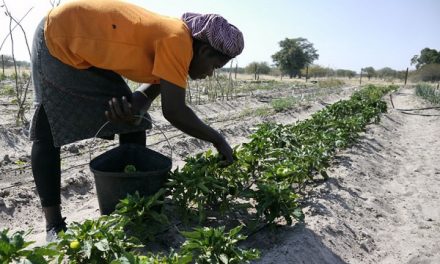
“government officials are venal, incompetent, and interested solely in getting lucrative appointments”
The headline hits one in the face. I could not help lifting it from an opinion article originating from Europe but analysing institutional capacity in China. After all, it seems, governments the world over are the same and populated by similar creatures.
The ineptitude of government officials, especially those responsible for policy formulation, are usually hidden by an army of bureaucrats and technocrats. When economic conditions are stable and the growth path is guaranteed, the inability to steer the economy does not matter much. The actual hard work of making business and growing prosperity is the domain of the private sector. As long as the fiscus is not impaired, policy becomes a demoted priority. But when markets are in turmoil and economies flounder, leadership ability coupled to visionary leadership, becomes so much more important. This, in my mind, is a universal phenomenon and not a particular trait of southern Africa.
As we approach the presidential election in the USA, the quality of leadership will become a critical campaign issue. American profligacy brought us to the brink of an economic meltdown four years ago and as US voters are asked to make up their minds about a future leader, the so-called fiscal cliff looms ever nearer. Whereas I got the impression at that time that American consumers do not care much for what their government spends, too many individuals have fallen off the American dream to continue to ignore the solid obstacle awaiting them if they choose to turn a blind eye to the fact that America is technically bankrupt.
Sure, there are many other economies that are technically bankrupt. But they are the obvious ones – too obvious. What has slowly and painfully unfolded in the European periphery is just a minor first take of what will eventually happen in the United States if its government does not determinedly turn the ship around. Whereas the southern European economies are incidental stage props for the bigger show in Europe’s core economies, the US economy is a horse of a different matter. When America goes, the world goes.
This view is dramatic but it does not diminish from the fact that the US economy is on course to eventually enter the same obliterating maelstrom in which much of Europe finds itself. Every week, I still read reports by deluded analysts that believe, simply because there is no substitute global currency, the US dollar and US government treasuries will continue to be viewed as safe haven investments. That is patently false. If America continues on its destructive path, at some point, the markets will lose patience and impose punitive interest rates. This will be followed quickly by an adjustment of lending rates, and then the massive US economy is really down the drain because that would affect its main contributor, the American consumer.
What happens in Europe and in China will then become completely irrelevant. The entire global economic engine will grind to a halt. This process will not happen in a quick swoop like many end-of-world protagonists would like us to believe. Instead, I see a more plausible scenario where the US economy enters a phase similar to the period endured since 2008 by Ireland, Greece and Portugal. Only the destructive forces will be much stronger, the damage will take longer to materialise, but the outcome will be a thousand times more severe.
In the meantime, international investors are spoiling the game for all the other, rather innocent by-players. In the week I read a report on the condition of the Australian economy. Shockingly, 80% by value, of all bonds listed on the Australian Stock Exchange, are held by foreigners exploiting the so-called carry trade in Aussie dollars. What this means is that higher interest rates in Oz, attracts foreign portfolio investment since at the source of the capital, interest rates are zero or close. The spread between interest at source and interest in the Aussie market, is attractive enough to keep foreign portfolio investment flowing. A similar situation prevailed in Yen during the nineties and early twenties, until western interest rates collapsed. Then the Yen carry trade also collapsed and many small Japanese investors got burned.
Locally we sit with a similar problem. Relatively higher interest rates in South Africa, also attract a carry trade. This forces the central bank to lower the interest rate despite the fact that growth fundamentals require the opposite strategy. Good for borrowers but very disruptive to fixed income dependants. And foreign portfolio investment can evaporate overnight. This destroys the local currency, endangers price stability, and leads to long-term economic damage. That is not what we want from foreign investment.










































